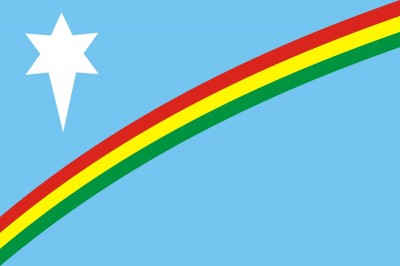By Subir Bhaumik
Kolkata, March 14 : The separatist National Socialist Council of Nagalim (NSCN) has made it clear that a final settlement of the “Indo-Naga problem” can be worked out only on the basis of the 2015 Framework Agreement signed between them and the Indian government.
In a press statement, the NSCN’s parallel government made it clear that the Framework Agreement was signed by the two entities at the behest of the Indian Prime Minister’s Office in presence of senior ministers, top government officials and a NSCN delegation.
The statement issued by the ‘Government of the People’s Republic of Nagalim from their headquarters’ in Hebron in Nagaland on Sunday said that the signing of the Framework Agreement on August 3, 2015 was telecast live, promising an end to one of the longest armed conflicts in Asia.
“The Framework Agreement is in public domain now. It clearly acknowledges that the Indo-Naga conflict is political and nothing else. Both sides have agreed to put this violent conflict to an end once and for all by solving the problem on the basis of shared sovereignity (sharing of sovereign power) by respecting people’s sovereign right,” the statement said.
It blamed “the unacceptable posturing of Indian authorities” since that agreement for the failure to work out a final settlement of the “Indo-Naga problem”.
The statement insisted that a final settlement can be worked out only and only on the basis of the 2015 Framework Agreement and that an effort was now needed in that direction.
It expressed the hope that “India and Nagaland will enter into a new enduring and inclusive relationship of peaceful co-existence of the two entities (India and Nagaland)” once a final settlement was reached on the basis of the 2015 Framework Agreement.
“Enduring and inclusive new relationship of peaceful co-existence of the two entities means relationship is extra-ordinarily strong, sustainable and durable through trials and pains and the two are to remain interlocked though each maintains one’s own identity. One is not within the other; one is not completely away from the other either. Both shall remain together as two entities as agreed upon,” the statement said.
The NSCN statement hailed the ” statesmanship of the then PM Mr. Atal Bihari Vajpayee which recognized the Unique history and political situation of the Nagas in July 2002″.
“Historically we (Indians and Nagas) have nothing in common. In politics, cultures,
social life and traditional ethos, there is no commonness. But unfortunately, some
Indian leaders are twisting and misinterpreting our unique history and situation in such a way that in India which is a big country with many states and peoples, they have their own uniqueness in culture, language, traditional practices and so are the Nagas.”
“It must also be clear that this violent conflict was not initiated by the Nagas. Nagas are the aggrieved, not the aggressor. In spite of the bloody past and bitterness, Nagas are realistic and pragmatic that we have agreed to resolve the problem and reconcile with the Government of India by sharing sovereign power and enter into a new relationship for peaceful co-existence of the two entities,” the statement said.
It said that “within this Framework Agreement both the parties are required to work out
the details and execution plans for early implementation”.
“Therefore, any formulation or proposal from any quarter which is outside the parameter of the Framework Agreement shall not be acceptable to the NSCN in particular and the Naga people in general. We call upon the Government of India to be more positive and sincere,” the statement said.
The Indian government has refused to concede to the NSCN’s demand for a separate Constitution and a separate flag for Nagaland but the NSCN argues that flows from the concept of shared sovereignity which was embedded in the 2015 Framework Agreement.
Disclaimer: This story is auto-generated from IANS service.

